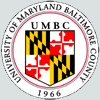| |||||||||||||||||||
Tips:  Range on the Protein: Protein ID Protein Position Domain Position: 
|
|---|
Weblogos are Copyright (c) 2002 Regents of the University of California
| DMDM_info@umbc.edu | 1000 Hilltop Circle, Baltimore, MD 21250 | Department of Biological Sciences | Phone: 410-455-2258 |




 Chemokine_CX3C: 1 of 4 subgroup designations based on the arrangement of the two N-terminal cysteines; differ structurally from the other subgroups in that they are attached to a membrane-spanning domain via a mucin-like stalk and can be proteolytically cleaved to a freely diffusible form; chemotatic for T cells, monocytes, and natural killer cells; function as monomers and are found only in vertebrates and a few viruses; currently only fractalkine (sometimes called neurotactin) has been identified as a member of this subfamily; the primary source of fractalkine is neurons, and they exhibit cell adhesion and chemoattractive properties in the central nervous system. See CDs: Chemokine (cd00169) for the general alignment of chemokines, or Chemokine_CXC (cd00273), Chemokine_CC (cd00272), and Chemokine_C (cd00271) for the additional chemokine subgroups.
Chemokine_CX3C: 1 of 4 subgroup designations based on the arrangement of the two N-terminal cysteines; differ structurally from the other subgroups in that they are attached to a membrane-spanning domain via a mucin-like stalk and can be proteolytically cleaved to a freely diffusible form; chemotatic for T cells, monocytes, and natural killer cells; function as monomers and are found only in vertebrates and a few viruses; currently only fractalkine (sometimes called neurotactin) has been identified as a member of this subfamily; the primary source of fractalkine is neurons, and they exhibit cell adhesion and chemoattractive properties in the central nervous system. See CDs: Chemokine (cd00169) for the general alignment of chemokines, or Chemokine_CXC (cd00273), Chemokine_CC (cd00272), and Chemokine_C (cd00271) for the additional chemokine subgroups. No pairwise interactions are available for this conserved domain.
No pairwise interactions are available for this conserved domain.






